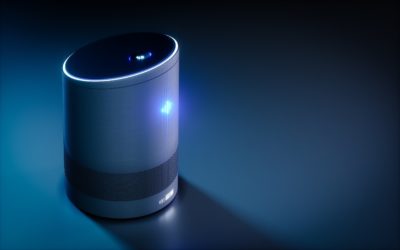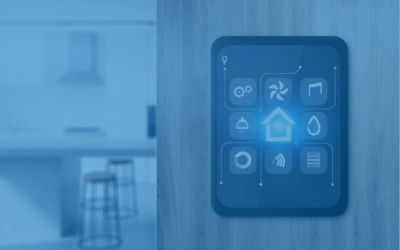Proud to Partner with Pioneers: Cloud of Things and AES Support the Launch of Hortica
09
September 2020
by Marketing Team
Today, one of our customers, Hortica, announced its entry into the U.S. market followed by global expansion. Working with our partner AES (minIoT) we helped Hortica create an advanced “connected cultivation” solution supporting the growth of high quality, high yield crops.
Hortica is building advanced greenhouses to grow pharmaceutical quality cannabis for medical use. Our team has been honored to be part of this innovation initiative, which you can learn more about by reading Hortica’s press release.
Hortica’s breakthrough makes it possible to supply organic, safe, consistently high quality, and standardized crops used to create medicinal treatments.
The innovation is leveraging DeviceTone IoT Suite running on Microsoft’s trusted Azure cloud platform and includes hardware from AES including their minIoT modules.
This team has been working together in stealth mode to create a “Connected Cultivation” offering that addresses massive growth opportunities by solving fundamental quality, consistency, and repeatability challenges. Hortica Labs has created and tested the Phase One solution in Israel. The next implementation is scheduled in the U.S. with Hortica’s first full facility expected to open in the fourth quarter of this year.
Hortica’s capabilities are based on sensors, machine-generated data and IoT-based automated control systems. These capabilities enable growers to run their facilities automatically and autonomically, with unprecedented data, analytics, and insights. Hortica is also building the world’s first Cannabis Precise Cultivation Database.
A recently published study (June 2020) has revealed that medical cannabis patients use fewer healthcare resources and report improved quality of life, which makes our mission with Hortica and AES inspiring.
Researchers from Johns Hopkins Medicine and the Realm of Caring Foundation surveyed patients to investigate, finding that they reported less pain, better sleep, and reduced anxiety, contributing to an overall better quality of life.
The patients also reported taking fewer prescription medications and were less likely to have visited an emergency room or have been admitted to a hospital than people who didn’t use cannabis for medical purposes – showing that cannabis patients put less strain on healthcare resources.
The study was just published in Cannabis and Cannabinoid Research.
Ryan Vandrey, associate professor of psychiatry and behavioral sciences at the Johns Hopkins University School of Medicine, said: “It wasn’t surprising to me that people claim to feel better when using medical cannabis, but it was unexpected to see that these people utilized less health care resources.
Results from the study showed that medical cannabis patients reported about an 8% better quality of life, a 9% reduction in pain scores, and a 12% reduction in anxiety scores.
Medical cannabis patients also reported using 14% fewer prescription medications, that they were 39% less likely to have visited an emergency room, and 46% less likely to have been admitted to a hospital in the month before being surveyed.
Vandrey added: “This study was a 30,000-foot view of the landscape and now we need to drill down to see what conditions are actually benefitted from medical cannabis use.”
The Cloud of Things platform is being used to spin up, monitor, and manage connected greenhouses Hortica is developing, enabling computing at the edge and to the cloud which makes advances including AI and machine learning possible. With a centralized approach, Hortica can build facilities around the world, and have visibility into all sensor-based data, while also supporting automation which improves the quality of the cultivation and harvest, while reducing costs and inconsistent quality associated with traditional methods.
We are very proud to be part of this initiative on many levels. Read the entire press release here.
Similar Blogs
Cloud of Things joins the Tondo-Smart group, a leading public smart-city vendor
Ultra-Low Energy (ULE), an extension of the Digital Enhanced Cordless Telecommunications (DECT) physical layer specification that supports low power devices, is becoming an increasingly popular approach, promoted by the ULE Alliance as “a way to provide sensors, actuators and other smart devices in the Internet of Things (IoT) with two-way transmission capability over a dedicated frequency band of 1900MHz.”
DSP Group and Cloud of Things Combine Forces and Introduce a Fully Managed ULE IoT Cloud Services Gateway
Ultra-Low Energy (ULE), an extension of the Digital Enhanced Cordless Telecommunications (DECT) physical layer specification that supports low power devices, is becoming an increasingly popular approach, promoted by the ULE Alliance as “a way to provide sensors, actuators and other smart devices in the Internet of Things (IoT) with two-way transmission capability over a dedicated frequency band of 1900MHz.”
As Smart Home Solution Adoption Explodes, Service Providers Seek Simplicity and Scale
The collapse of the housing market in North America in 2008, driven in large part by the near-collapse of the economy, is now in the rearview mirror. The market today is healthy and evolving, responding to the impact of COVID-19 in America’s largest cities, which is driving up the prices of luxury homes in the suburbs and more affordable housing for those looking to leave small, cramped apartments and work remotely from larger, affordable apartments as remote working becomes more acceptable to certain businesses.


